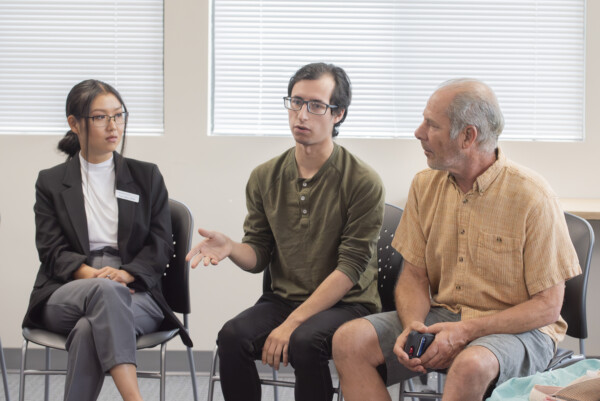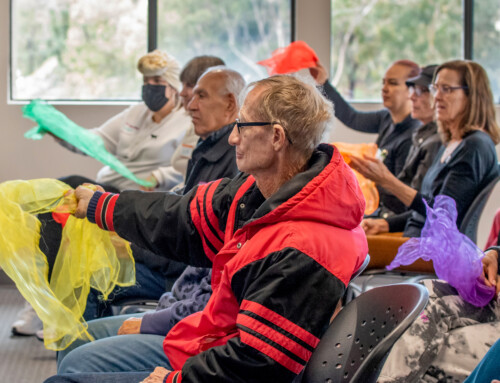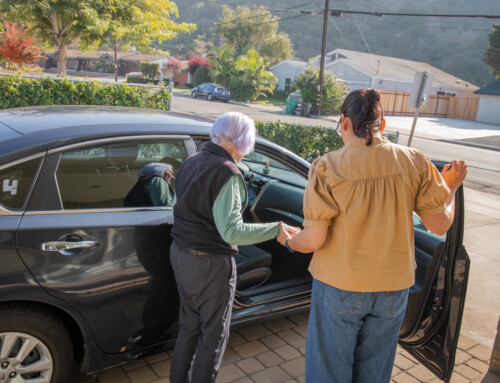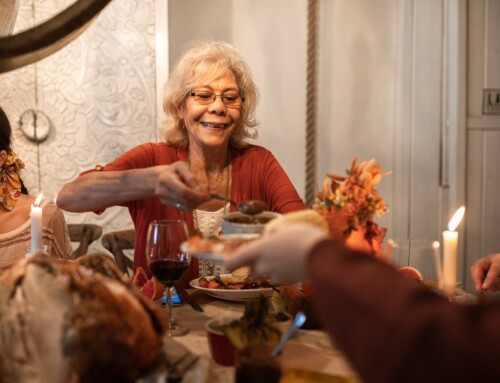
Written by Ellen Boucher, BSW / Support Group Specialist
Most people find it hard to ask for help or share concerns and fears. This is especially true when it is about someone you are caring for who is living with dementia. It can feel as if you are betraying their privacy as well as admitting weakness about yourself. It is important to realize though, that the role of care partner is not meant to be done alone. But how can you find people to talk about those tough topics and troubling feelings with? It is seldom easy to find people in your world who can grasp what your life experience is as a caregiver. This is why Alzheimer’s San Diego offers support groups for caregivers. You can meet with others who are also living the reality of caregiving who will often relate to your experiences. Although the details may differ, people have similar topics to talk about such as challenging needs to address and hurtful feelings to handle. As one attendee stated, “Even though our situations are all different, they are all the same: hard and painful.”
Here are a few of the categories of difficult topics in support groups and statements from attendees:
Finances & Decision Making
“How do I take the best care of [my loved one] and make sure I am meeting all of their needs?”
“I had to un-retire so I can afford the cost of dementia and hopefully have money to take care of me in the future.”
“Am I making the best decisions? I don’t know how to handle second-guessing myself.”
Differences of Opinion
“Why do my family members make it even harder on me?”
“My friend keeps telling what they think I am doing wrong.”
“Everyone has a different opinion about what I should do.”
Feelings
“I grieve for parts that are no longer there.”
“I keep hoping that [my person] will get better, but I know [my person] won’t.”
“The stress was eating away at me.”
“[My person] won’t remember, so why do I keep talking?”
“I can’t believe this going to get harder – it is already so, so hard!”
“I don’t know how I am going to survive this.”
Isolation
“People keep telling me to ask for help but there is no one I can ask!”
“I don’t understand why other people cannot accept my [person] in spite of their dementia. People are not celebrating the holidays with us because they don’t want to be around [person]. That both makes me mad and hurts so much!”
“People can’t see the issues that I deal with.”
“How can I get emotional support – I feel so alone. The grief just grows with each passing day.”
“What will I do when [my person] is gone? Who will I be?”
Day to Day Life
“I know I shouldn’t take the emotional outbursts personally but sometimes I can’t help it.”
“Is what I feel normal? I feel so frustrated and angry and just don’t know how to be a nice person sometimes.”
“I never thought I would have to handle incontinence.”
“It’s so difficult to not yell back when you’re being yelled at.”
“[My person] won’t remember, so why do I keep talking?”
“[My person] won’t eat.”
“It is hard to talk to my [person] about [their] diagnosis.”
If you can relate to any of these statements or have other difficult thoughts, please consider participating in a support group. You may be surprised at how much difference it can make in your life! To discuss all of our free support group options, call us at 858.492.4400 to speak with one of our dementia experts who are here to help San Diego County residents and/or those caring for someone living in San Diego County (Spanish speakers available) or view our list of support groups here. Also check out our free education classes, social activities, & more.
RECOMMENDED: Support Groups and Therapy Groups: What’s the difference?
Posted on January 20th, 2025





